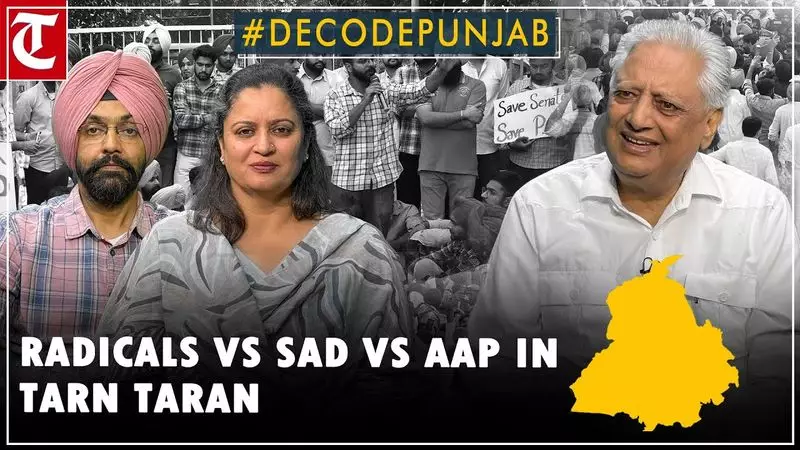
In a significant development that has sent shockwaves through Indian political circles, senior Congress leader Rana KP Singh has tendered his resignation from all party positions, exposing the deepening internal rift within the Punjab Congress unit. The resignation comes amid growing discontent and factionalism within the party, particularly following recent controversies surrounding Punjab University and the Tarn Taran bypoll.
The Resignation That Shook Punjab Politics
Rana KP Singh, a prominent figure within the Punjab Congress, submitted his resignation from all organizational posts, citing serious differences with the party's state leadership. The resignation highlights the ongoing power struggle and internal conflicts that have been plaguing the Congress party in Punjab for several months.
This dramatic move comes at a crucial juncture for the Congress party, which has been attempting to rebuild its presence in Punjab after facing significant electoral setbacks. The timing of Singh's resignation is particularly noteworthy as it coincides with other controversies that have put the party's Punjab unit under intense scrutiny.
Connecting the Dots: Punjab University and Tarn Taran Bypoll
The political turmoil within Punjab Congress becomes more complex when examining the parallel controversies at Punjab University and the Tarn Taran bypoll. Sources indicate a pattern of internal discord that extends across different spheres of the party's operations in the state.
At Punjab University, Congress-affiliated leaders have been facing challenges in maintaining unity and coherence in their approach to institutional politics. Similarly, the Tarn Taran bypoll exposed the factional divides within the party, with different groups pushing for their preferred candidates and strategies.
Political analysts suggest that Rana KP Singh's resignation is not an isolated incident but rather a symptom of the broader organizational challenges facing the Congress party in Punjab. The convergence of these three issues - the resignation, university controversies, and bypoll tensions - paints a picture of a party struggling to maintain internal discipline and unity.
Implications for Congress's Future in Punjab
The resignation of a senior leader like Rana KP Singh raises serious questions about the Congress party's prospects in Punjab. This development could potentially impact the party's ability to present a united front against its political opponents, particularly the ruling Aam Aadmi Party and the Shiromani Akali Dal.
Internal sources within the Congress party indicate that efforts are underway to address the concerns raised by Singh and other dissenting voices. However, the persistent nature of these conflicts suggests that deeper structural issues may need to be addressed for the party to regain its footing in Punjab politics.
The timing is particularly crucial as the state prepares for upcoming local body elections and eventually the next assembly elections. The Congress leadership's ability to manage this crisis and bring about reconciliation among warring factions will likely determine the party's electoral fortunes in the coming years.
Political observers are closely watching how the central Congress leadership responds to this development, as it could set a precedent for handling similar internal conflicts in other state units. The resolution of this crisis, or lack thereof, may have far-reaching consequences for the grand old party's revival strategy nationwide.






